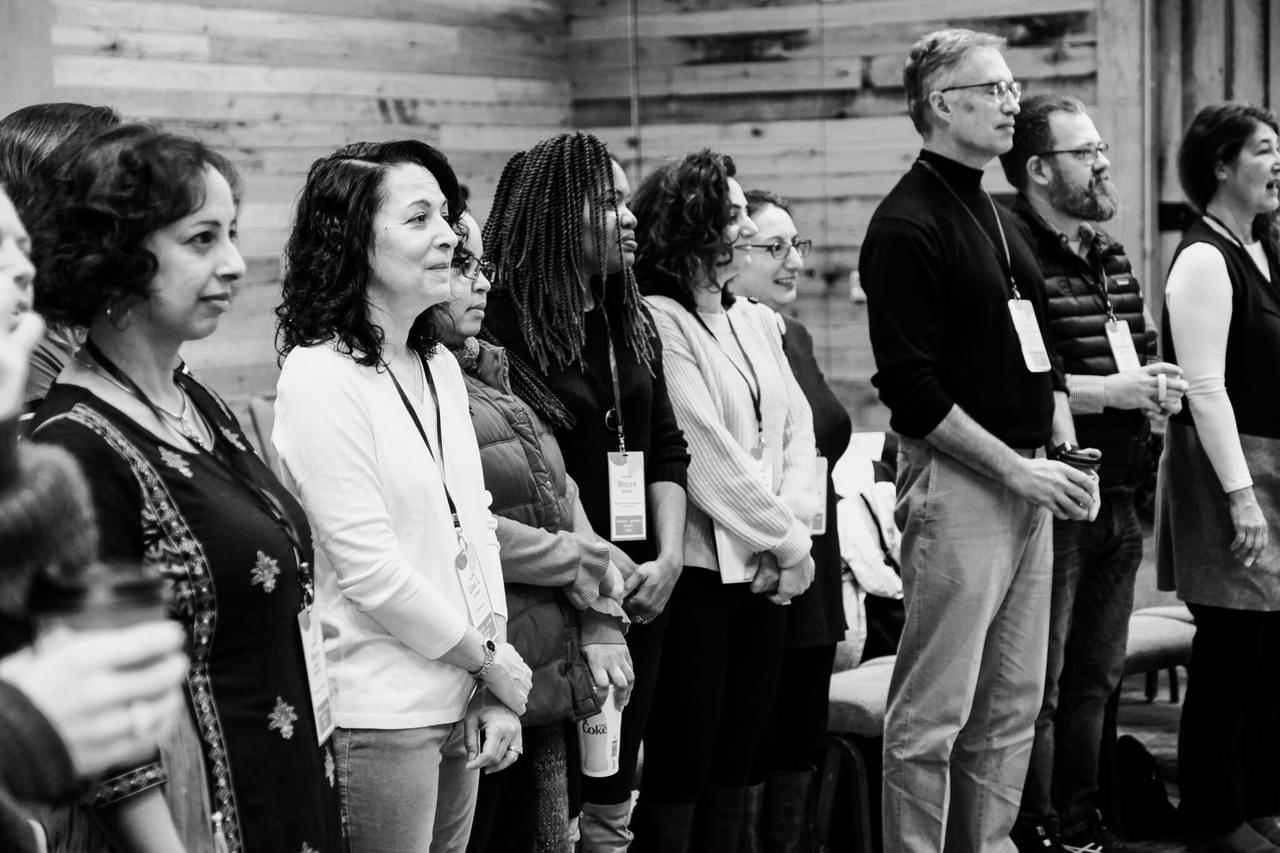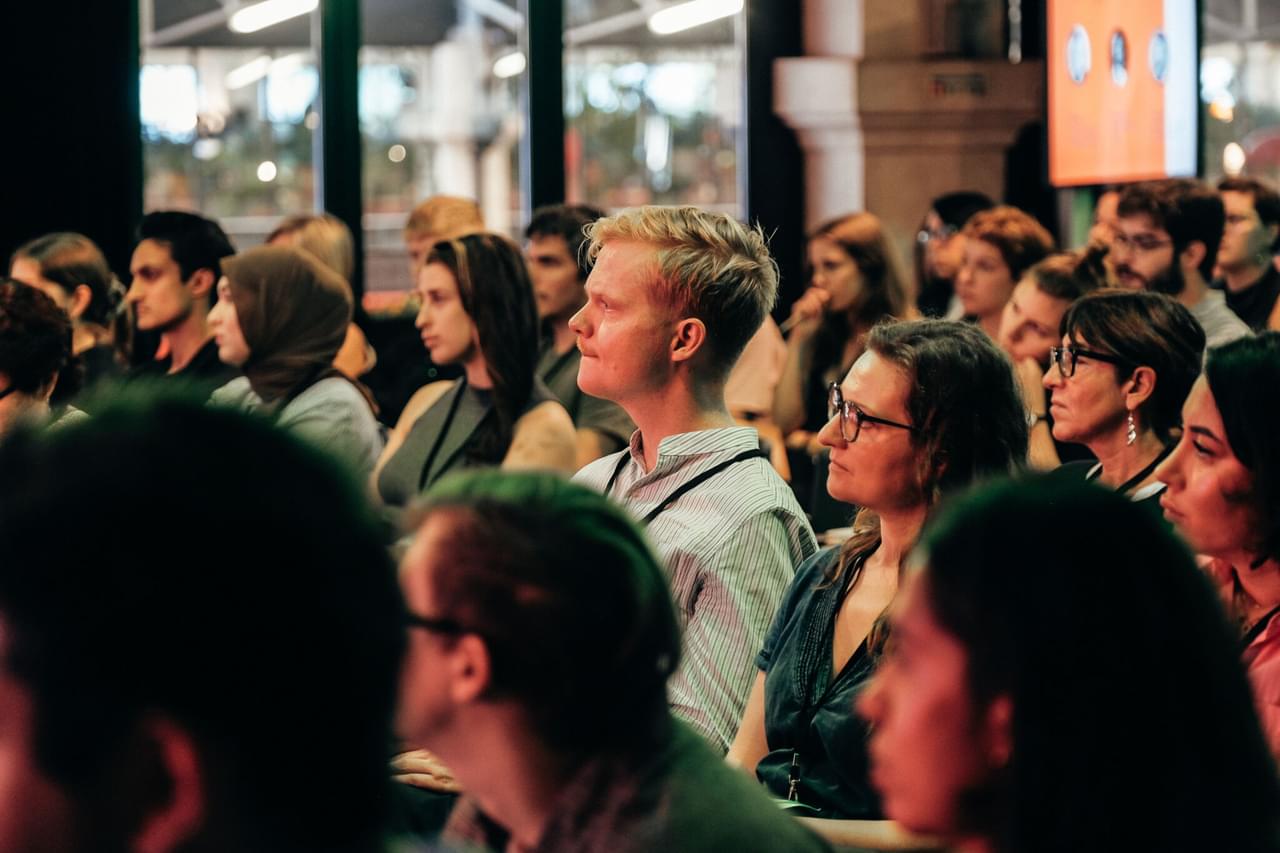Topics

Insights
How EJC champions Sustainable Development Goals for an equitable world

The European Journalism Centre (EJC) aligns its work with the Sustainable Development Goals (SDGs), focusing on strengthening journalism, supporting media freedom, and enabling informed public discourse on global sustainability issues
Programmes like the Solutions Journalism Accelerator (SJA), the Climate Journalism Award and IJ4EU fund support journalism that focuses on areas such as climate change, gender equity and inequality. Yet, our mission extends beyond SDG promotion to encompass ethical reporting and amplifying diverse voices, striving for inclusive and impactful journalism.
So how do you communicate and measure the impact of this support for sustainability and equity, and how can we capture how journalism fosters empathy and understanding, raises awareness, and inspires action?

This post is part of our Programme Insights series. Newsletter subscribers get exclusive insights into the European Journalism Centre’s programme strategy and impact as we evolve to support an industry in flux.
Aligning journalism with the SDGs
Establishing a link between sustainable development and journalism is straightforward. Sustainable development involves harmonising economic growth, social inclusion, and environmental protection. Similarly, sustainable journalism requires aligning financial viability with social and environmental responsibilities.
Our Solutions Journalism Accelerator (SJA) supports 19 projects that “directly address one or more of the first six Sustainable Development Goals” (goals 1-6). Applying a solutions-oriented lens to journalism is about combining data with diverse perspectives to present a comprehensive picture. Ethical reporting, the amplification of diverse voices and a contribution to empowering communities are strongly embedded in the SJA (goal 10). Other EJC initiatives like the Climate Journalism Award and the News Impact Summit bolster climate change reporting and environmental journalism (goal 13).

Further parallels can be found:
Goal 5: Gender Equality: EJC prioritises gender equality in media coverage and organisations, doing our best to guarantee equal opportunities and representation for women and gender-diverse people in journalism.
Goal 17: Partnerships for the Goals: EJC collaborates with various stakeholders, including NGOs, media organisations, and international bodies, to achieve common sustainable development objectives and media sustainability.
EJC has recently joined the Sustainable Journalism Partnership, “a global forum of media researchers, practitioners, educators and media leaders who have come together to develop knowledge and practice on how journalism can be made more sustainable – and at the same time contribute to a more sustainable society.”
Measuring sustainability
Measuring sustainability in journalism involves assessing traditional metrics like financial viability and audience engagement alongside factors like quality, diversity, and long-term societal influence. At EJC, we measure:
- The contribution of our programs to journalism resilience and sustainability.
- The reach and impact of journalism produced under our programmes.
- The effectiveness of EJC's model and practices.
The IJ4EU fund, which supports cross-border investigations in the public interest, is one of the programmes directly contributing to building resilience and sustainability in the European media landscape. The EJC directly manages the Freelancer Support Scheme, but it is the strength of a consortium with partners like the International Press Institute (IPI), European Center for Press and Media Freedom (ECPMF), and more recently, Arena for Journalism in Europe, that has made IJ4EU such an impactful initiative.
IJ4EU contributes to a stronger media ecosystem and society by boosting collaboration and pluralism in media, fostering public debate, and driving policy changes. Its sustainability stamp lies in a profound impact on the media ecosystem as well as its model and replicability. The programme is an effective combination of public funding (European Commission) and private philanthropic support to produce independent journalism in the public interest.

Since it was first launched in 2018, over four editions, IJ4EU has disbursed around €3.5 million to cross-border teams of newsrooms and freelancers, helping nearly 1,000 journalists collaborate on high-impact stories resonating with millions of people in Europe and beyond. In its 2022 edition, IJ4EU financed 47 investigations across 31 European countries (out of 36 eligible countries), resulting in articles across print, online, audio and video published in 15 languages in approximately 230 media outlets of various sizes and types.
Cross-border investigations supported by IJ4EU have resulted in substantial reach and influence. The investigation The Jungle exposed the dire conditions facing migrants and refugees trapped in harsh terrain far from the glare of media scrutiny. It has resonated widely, with stories published all across Europe and as far away as Japan. Exhibitions will feature the project’s photojournalism in Spain, Germany, and Brazil. The investigation The Gold Chain unveiled how European gold importers turn a blind eye to illegal mining, deforestation, and rights abuses in the Amazon. A documentary based on it will be released soon.
Empathy drives equity
While EJC's focus is on Europe, our commitment to sustainability extends globally through initiatives that foster empathy, challenge perspectives, and promote inclusive journalism. EJC’s in-person events facilitate cross-border collaboration, enabling learning and partnership-building across regions. Last week in Kenya, the EJC brought together 80 representatives of newsrooms from Europe, Africa, and the US in Nairobi over two days, 20-21 February. They shared their work, talked about what makes good journalism, and made connections that cross borders.
These events cultivate empathy, challenge perspectives, and advance inclusivity in journalism. Their impact surpasses mere attendance numbers or new partnerships. The impact lies in reshaping individuals' perceptions of journalism worldwide. The empathy generated among journalists and newsrooms derives from a better understanding that conventional narratives are often dominated by voices from the Global North, particularly from the UK and US, and delivered in English. By engaging, employing and collaborating with journalists and newsrooms from different regions, despite the cultural and organisational differences, we are empowering a collective resistance against forces that seek to silence journalists and undermine press freedom globally.
More empathy serves as a catalyst for inclusivity and decolonising journalism at every level—content, funding, and media development—laying the groundwork for journalism that truly leaves no one behind. These forums also prompt supporters like EJC to contemplate their role in shaping the future of journalism, whether as media development organisations, journalists, or individuals invested in a better future. While the impact of these efforts may seem intangible, it unfolds gradually over time as narratives, representations, and stereotypes evolve. Commitment to sustainable journalism and a more equitable world demands a concerted effort to challenge entrenched norms and redefine the rules of engagement.
If you have questions, comments or suggestions about this article, you can write to Vera at peneda@ejc.net
Please make a contribution today
Your support will help us continue providing the kinds of opportunities journalists tell us they rely on
Would you like to have a direct conversation about making a donation? Please get in touch.


